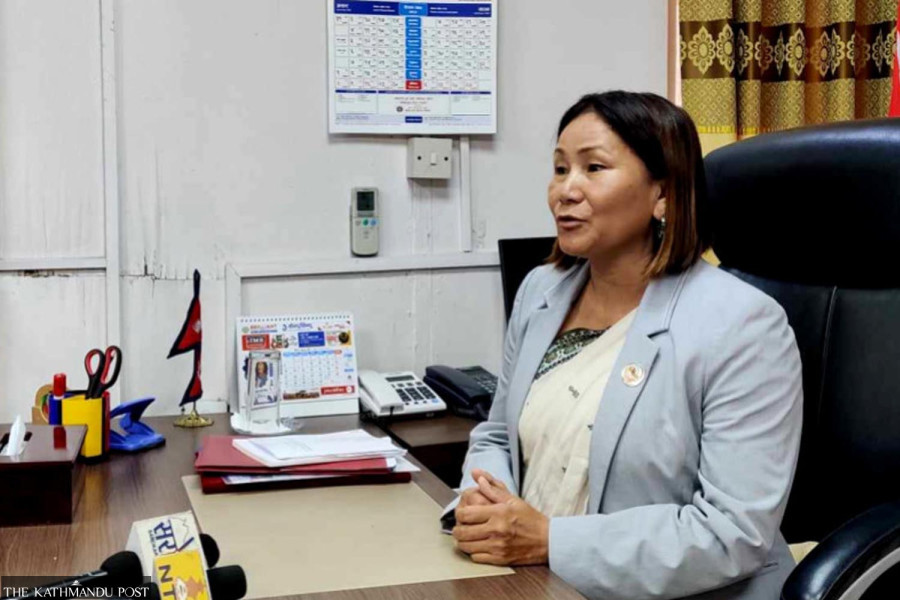Editorial
Deputy Speaker’s indiscretion
Someone in Rana Magar’s position cannot make such ‘innocent’ mistakes.
The accusations of abuse of authority and accepting kickbacks that have been levelled against Deputy Speaker of the federal parliament Indira Rana Magar are not easy to dismiss. Rana Magar recently came into controversy after a letter she wrote to the American Embassy in Kathmandu, urging the embassy to expedite visa dates for some people, came to light. In the letter dated 26 February 2023, she has asked the consular general at the embassy to arrange visa dates for six people, including herself. The other five are Dipendra Gautam, Sushma Lama, Rajesh Lama Tamang, Sujan Magar and Dhan Prasad Gurung. The communication was made on the official letterhead of the House of Representatives. The letter says the six were attending the 67th session of Commission on the Status of Women that was being held in New York from March 6 to 17, 2023, and she wanted the interview dates to be preponed. In normal course, the Parliament Secretariat makes such requests on behalf of the speaker and deputy speaker via the Ministry of Foreign Affairs. What is even more unusual is that Rana Magar admits that she knew only one of the other five people mentioned in the letter.
Some media reports have also published material suggesting that the deputy speaker accepted money in return for lobbying for visa dates. The Rastriya Swatantra Party, which nominated her to the state position, has denounced her ‘media trial’ and an attempt at ‘character assassination’. In her own defence, Rana Magar has put out a statement saying that she wrote the letter “out of compassion” for the grassroots folks who would otherwise never get to go abroad. These arguments are difficult to buy. It is inappropriate for a deputy speaker to recommend complete strangers for a programme to which they are not even remotely connected. Another problem is that Rana Magar has been changing her statements. For instance, when the controversy first surfaced, she said she had signed no such letter. Later, she admitted to signing and sending it. Both Rana Magar and the RSP have questioned why the letter, written a year and a half ago, has been made public now. They say it is aimed at removing Rana Magar from the Constitutional Council. (Deputy Speaker is an ex-officio member of the council that recommends chiefs and members of constitutional bodies). Perhaps. Yet the RSP does not have a plausible explanation for why it did nothing even though the letter came to the notice of its top officials at least three months ago.
There are a few indubitable facts. One, there is no doubt that Rana Magar wrote that letter. Two, in doing so, she abused her authority. As far as accusations of monetary exchanges are concerned, they are a matter of investigation. Any way you see it, this issue calls for a thorough parliamentary investigation. Someone in Rana Magar’s position does not have the luxury of making such ‘innocent’ mistakes—or even what little prestige that remains of the state’s high offices will quickly vanish. If there was a criminal motive, the implications of a high-ranking state official engaging in human trafficking are worse still.




 11.12°C Kathmandu
11.12°C Kathmandu














